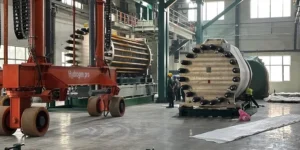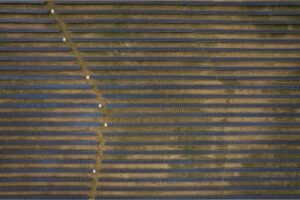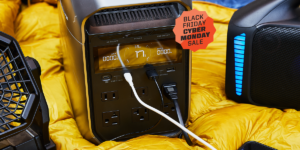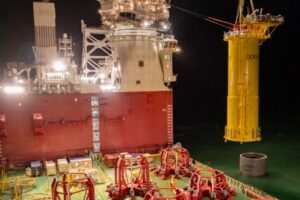US logistics firm opts to decarbonise with hydrogen trucks after operating battery electric fleet for two years

IMC, the largest company in the US hauling containers from ports to warehouses, has ordered 50 Nikola fuel-cell trucks for its operations in California, Arizona and Nevada, after disappointing results from two years of operating battery-electric vehicles.
The firm had purchased six Class 8 battery-electric trucks from Volvo in September 2022, as well as installing charge points capable of serving a fleet of 30, but found them wanting.
“The main challenge with battery [electric vehicles] is that you can only get four to six hours of productivity out of the truck in a 12-to-14-hour period if they are under load,” the marine drayage firm’s CEO Joel Henry told Memphis daily newspaper The Commercial Appeal.
“The problem is that it isn’t sustainable for trucking companies, which can operate diesel tractors for about 20 to 24 hours a day,” he added.
However, California regulations require all new drayage trucks registered from 1 January to be zero-emission vehicles, in an effort to phase out fossil-fuel trucks from ports by 2035.
“For the next few years, we will maintain our majority diesel presence and strategy, while being on the forefront of zero-emission tractors,” Henry said.
Article continues below the advert
“We see that the government wants us to go to zero-emission, and California is right on the cusp of following everything that the federal government wants done from a zero-emission standpoint.”
As such, IMC has opted for hydrogen fuel-cell trucks to meet this regulation — although it will continue to use its battery vehicles. But the company’s executives have expressed some caution around the H2 drivetrain as well.
“I am always worried about first-generation technology,” IMC’s President of the Pacific region, Jim Gillis, told the Wall Street Journal. “As fancy as it all looks, I know going into it that we are going to have some problems.”
However, Gillis also concurred that the 300-mile (483km) round trips between ports and warehouses the company regularly makes “are just beyond the reach of these battery-electric vehicles”.
Henry cited an expectation that IMC would see “significant improvements in reduced weight, improved efficiencies such as miles per gallon and cost of operation over the next few years” from the Nikola hydrogen trucks, 20 of which are due to be delivered this quarter.
However, he also noted that there would be major challenges around refuelling.
“On the hydrogen side, there is no infrastructure and we don’t anticipate any for multiple years,” Henry said.
“There are no public fueling stations, nor can you bring or build permanent hydrogen fuelling at our facilities,” he added. “To power these trucks, we are having to contract with a hydrogen fuel supplier to deliver tanker loads of hydrogen to our facilities.”
Shell currently operates three refuelling stations in California, including one at the Port of Long Beach. IMC told Hydrogen Insight that while it has considered using this station, Nikola trucks have to be refuelled at a specific 700-bar pressure.
“Without knowing if the station can accommodate a heavy-duty truck and until we can test the fueling at the pressure we need at that station, we cannot say if it is usable at this time,” a spokesperson for IMC said.
The order with Nikola is worth more than $22m, or above $440,000 per truck.
Nikola, which had accumulated around $2.9bn in losses over the past ten years, announced earlier this month that it had sold 35 trucks since serial production began in September.
However, the troubled company would not confirm the exact revenue from these sales until its Q4 earnings call in February.
The headline of this article was amended on 18 January to reflect the fact that IMC will continue to operate its six battery electric trucks. The original headline was “US logistics firm opts for hydrogen trucks after testing and rejecting battery electric fleet”.





